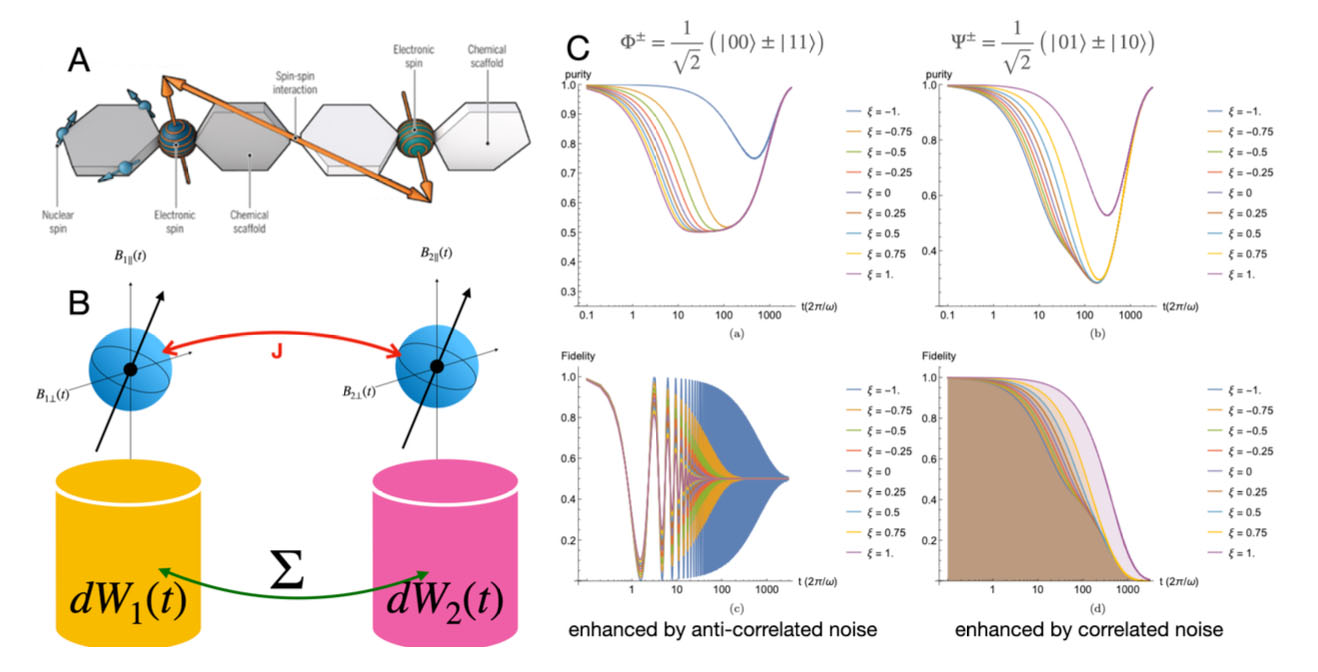Faculty Profile
 Eric Bittner
Eric Bittner
Hugh Roy and Lillie Cranz Cullen Distinguished Professor
Department of Physics
Office: Science & Research 1, 620
Contact: ebittner@central.uh.edu - 832-316-0381 (Mobile)
Education: Ph.D., University of Chicago; B.S., Valparaiso University
Google Scholar Profile
Website
Dr. Eric Bittner’s research interests span a diverse range of areas within chemical physics and its interdisciplinary applications. His primary focus is on quantum dynamics and non-linear spectroscopy, where he explores the evolution of quantum systems over time and their observation through various spectroscopic techniques. This aspect of his work is crucial for understanding energy transfer in organic materials, which is particularly relevant to the development of organic photovoltaic devices and organic electronics. He delves into understanding the mechanisms of energy transfer at the molecular level, aiming to enhance the efficiency and performance of these materials.
He is also deeply involved in the fields of quantum optics and stochastic processes. In quantum optics, he investigates the interaction of light with matter at the quantum level, which has implications for developing new photonic technologies and understanding fundamental aspects of quantum mechanics. His work with stochastic processes describes how optically dark environmental fluctuations and correlations play a role in the dynamical properties of quantum materials. Additionally, his group develops and applies advanced theoretical and computational methods to study complex material systems such as 2d perovskites and quantum spin-lattices. These methods are pivotal in predicting and explaining the behavior of molecules and materials, including non-adiabatic processes where electronic states change rapidly compared to nuclear motion. This approach also leads to work at the intersection of materials science, nanotechnology, and biophysics, applying his expertise in chemistry to broader scientific problems.
For a review of his work in quantum optics: researchfeatures.com/probing-complex-materials-quantum-spectroscopy/

Honors & Awards
- Fellow of the American Association for the Advancement of Science, 2023
- Stanislav Ulam Distinguished Scholar, Los Alamos National Lab, 2022
- Distinguished Alumni Award (Valparaiso University), 2019
- Leverhulme Professor (Durham University), 2019
- Fellow of the Royal Society of Chemistry, 2016
- Fellow of American Physical Society, Division of Chemical Physics, 2016
- Fellow of University of Houston Honors College, 2014
- Fulbright Canada Scholar, 2012
- University of Houston Research Excellence Award, 2008
- John Simon Guggenheim Fellow, 2007-2008
- Wiley/International Journal of Quantum Chemistry Young Investigator Award, 2003
- National Science Foundation CAREER Award, 1999
- National Science Foundation Postdoctoral Fellowship in Chemistry, 1995-97
- Elizabeth A. Norris Award for excellence in graduate research, The University of Chicago, 1994
- Lumina Award, Valparaiso University, 1988
Organizations, Outreach, Boards, Memberships
- Member: APS, ACS, RSC, IOP, AAAS
- Editor: Philosophical Magazine